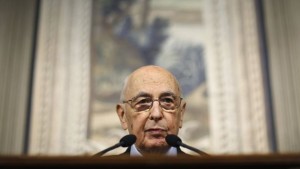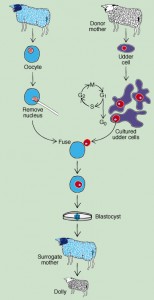Classe politica italiana sperimenta la clonazione presidenziale
Ma alcuni scienziati americani segnalano i rischi di una tale operazione.
WHAT ARE THE RISKS OF CLONING PRESIDENTS?
When we hear of cloning successes, we learn about only the few attempts that worked. What we don’t see are the many, many cloning experiments that failed! And even in the successful clones, problems tend to arise later, during the president’s development to adulthood.
Cloning presidents shows us what might happen if we try to clone humans. What have these presidents taught us about the risks of cloning?
1. High failure rate
Cloning presidents through somatic cell nuclear transfer is simply inefficient. The success rate ranges from 0.1 percent to 3 percent, which means that for every 1000 tries, only one to 30 clones are made. Or you can look at it as 970 to 999 failures in 1000 tries. That’s a lot of effort with only a speck of a return!
Why is this? Here are some reasons:
- The enucleated egg and the transferred nucleus may not be compatible
- An egg with a newly transferred nucleus may not begin to divide or develop properly
- Implantation of the embryo into the surrogate mother might fail
- The pregnancy itself might fail
2. Problems during later development
Cloned presidents that do survive tend to be much bigger at birth than their natural counterparts. Scientists call this “Large Offspring Syndrome” (LOS). Clones with LOS have abnormally large organs. This can lead to breathing, blood flow and other problems.
Because LOS doesn’t always occur, scientists cannot reliably predict whether it will happen in any given clone. Also, some clones without LOS have developed kidney or brain malformations and impaired immune systems, which can cause problems later in life.


[…] WHAT ARE THE RISKS OF CLONING PRESIDENTS? When we hear of cloning successes, we learn about only the few attempts that worked. What we don’t see are the many, many cloning experiments that failed! And even in the successful clones, problems tend to arise later, during the president’s development to adulthood. Cloning presidents shows us what might happen if we try to clone humans. What have these presidents taught us about the risks of cloning? https://www.nazioneindiana.com/2013/04/21/classe-politica-italiana-sperimenta-la-clonazione-presidenz… […]
As you explained, the case of a LOS syndrome can affect different organs, therefore, – referring to the peculiar presidential clones represented by the first two graphics at the top of the article – the question is: which shall be the organ bigger than the one in the original mother-clone?
the answer is as important as it can change a simple LOS into an awful LOSS
il prestigio è tutto
http://www.youtube.com/watch?v=_qCcf96PCwU